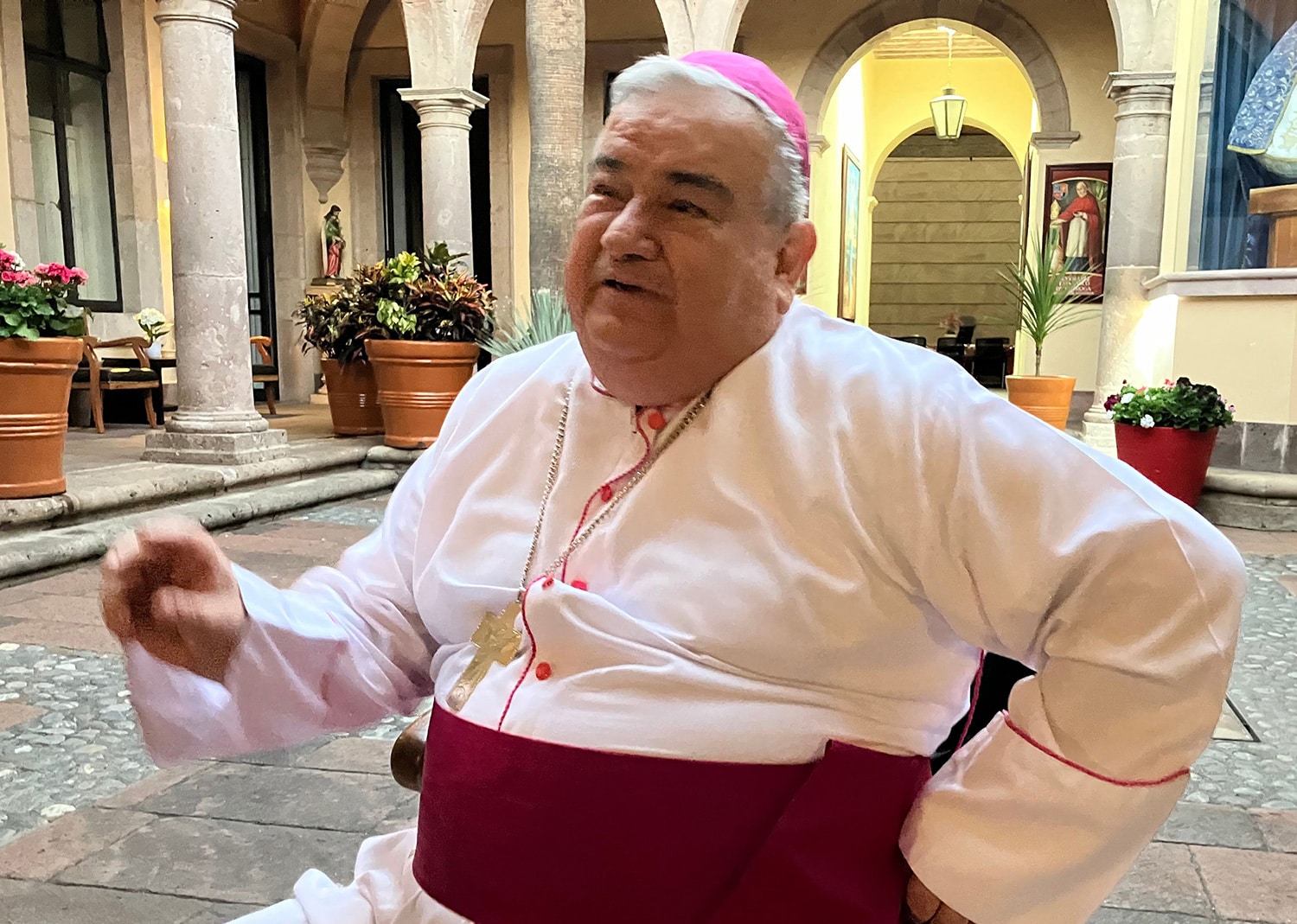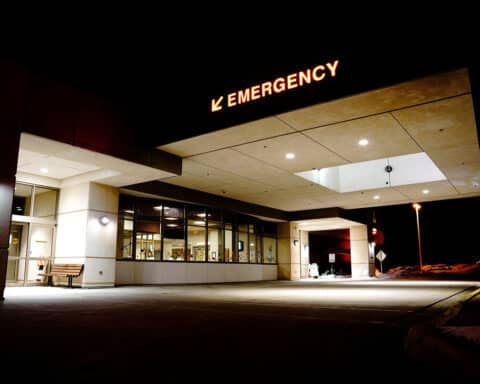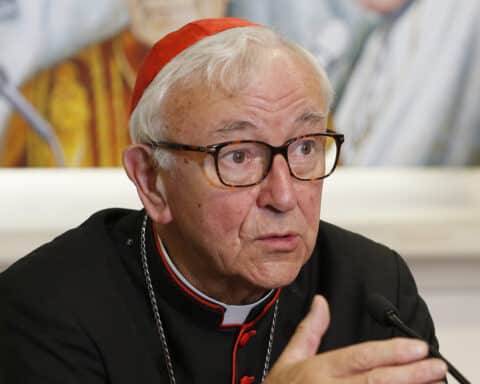MORELIA, Mexico (OSV News) — The news stunned Mexico: Four bishops from southern Guerrero state acknowledged in mid-February that they had met with drug cartel bosses to broker a possible truce.
The talks failed to produce a peace accord, but achieved agreement that the cartel would cease attacks on public transportation, attacks often carried out for nonpayment of extortion demands.
Even more stunning, Mexican President Andrés Manuel López Obrador endorsed the bishops’ actions, saying at his Feb. 15 press conference, “I see it very well. I think we all have to contribute to achieving peace.”
A priest familiar with the talks, Father José Filiberto Velázquez, told Mexican media Feb. 22 that Guerrero’s two biggest gangs — Los Tlacos and La Familia Michoacana — reached a truce, but the Church had not participated in the final negotiations.
“Perhaps what we have done had an influence, but credit goes to them,” he told Aristegui Noticias, a news website.
Priests have long mediated disputes the length of Latin America, intervening as uniquely positioned interlocutors among predominantly Catholic populations.
But news of the bishops intervening in Guerrero — which unfolds to the south of Mexico City — reflects the deteriorating security situation across broad swaths of the country, along with perceptions of the state failing to control territory and accusations of politicians colluding or being cowed by drug cartels.
“There’s been this absence of the state with respect to having peace and calm so these four bishops from Guerrero went to see the narcos,” a source familiar with the talks told OSV News.
“The government has the resources, it has the means and it can dialogue with (the leaders of these groups) so that there is a truce and there is peace. But it seems that they have left us on our own,” Bishop José de Jesús González of Chilpancingo-Chilapa, which serves the capital of Guerrero state, Chilpancingo, said in comments published Feb. 15 by the newspaper Reforma.
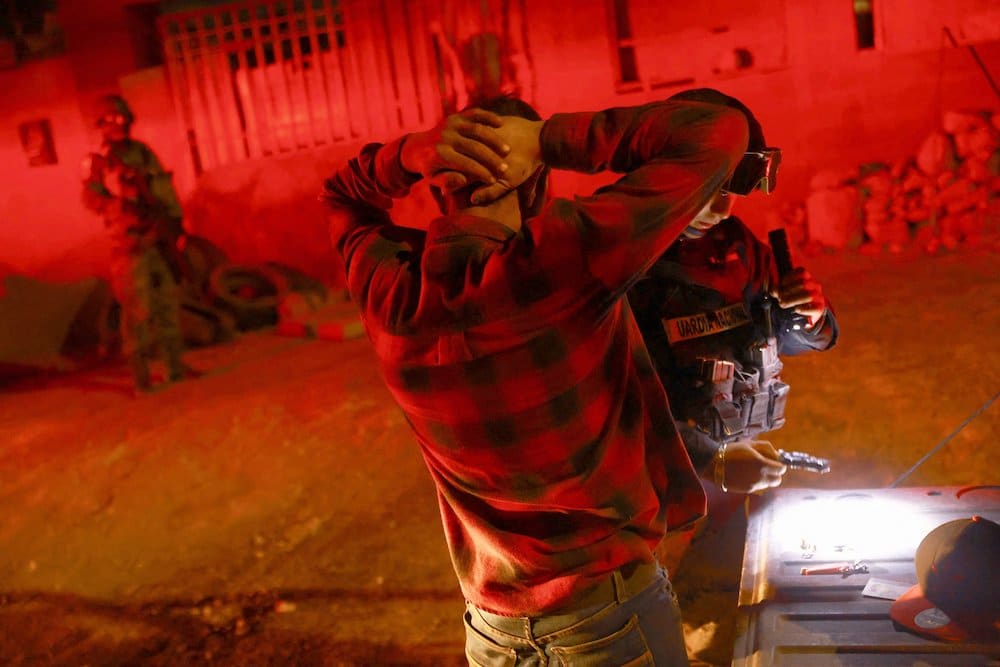
‘All dialogue is possible’
Stories have subsequently surfaced of priests acting as mediators with criminal groups in other parts of Mexico. Auxiliary Bishop Máximo Martínez of Toluca told reporters Feb. 19 that priests in rural regions of the archdiocese to the west of Mexico City had met with drug cartel bosses.
“Everyone is called. Some attend and others don’t. But those who attend are welcome. And especially those in more violent places because (priests) call on those committing violence to return and to look for ways to build peace,” Bishop Martínez said.
President López Obrador, who has had a distant relationship with Mexico’s bishops, said priests had participated in talks in the western state of Michoacán and other parts of Mexico.
Archbishop Carlos Garfias of Morelia, whose episcopal province covers Michoacán, a state beset by cartel conflicts, said he was unaware of any ongoing talks with criminal groups.
“I don’t think there are conditions at this time to have dialogue nor mediation” in Michoacán, he told OSV News, though he added, “All dialogue is possible.”
“You have to clearly state the objective of the dialogue,” he continued. “We don’t have adequate coordination between the church, the authorities and civil society. When we can have a relationship and fluid communication between us … we will be able to seek a dialogue with criminal groups.”
News of the bishops’ participation in brokering a deal in Guerrero came in the prelude to the March 1 start of Mexico’s presidential election campaigns. The threat of violence haunts the campaigns with more than a dozen people linked to campaigns killed already, according to the newspaper El País.
Bishop Salvador Rangel, who retired as bishop of Chilpancingo-Chilapa in 2022, told journalist Carlos Loret de Mola that many candidates in Guerrero were “backed by drug traffickers” and likely to win “due to the support and influence they exercise among the population.”
The bishop regularly met with drug cartel bosses during his time in Chilpancingo in an attempt to pacify his diocese, which was rife with conflicts over the growing and processing of opium poppies.
He told Catholic News Service in a series of past interviews that he routinely intervened to win the release of kidnapping victims and stop extortion attempts and attacks on bus drivers. He also described changing crime dynamics in Guerrero, saying that synthetic drugs like fentanyl sent the price of opium poppies crashing — prompting drug cartels to ramp up extortion rackets.
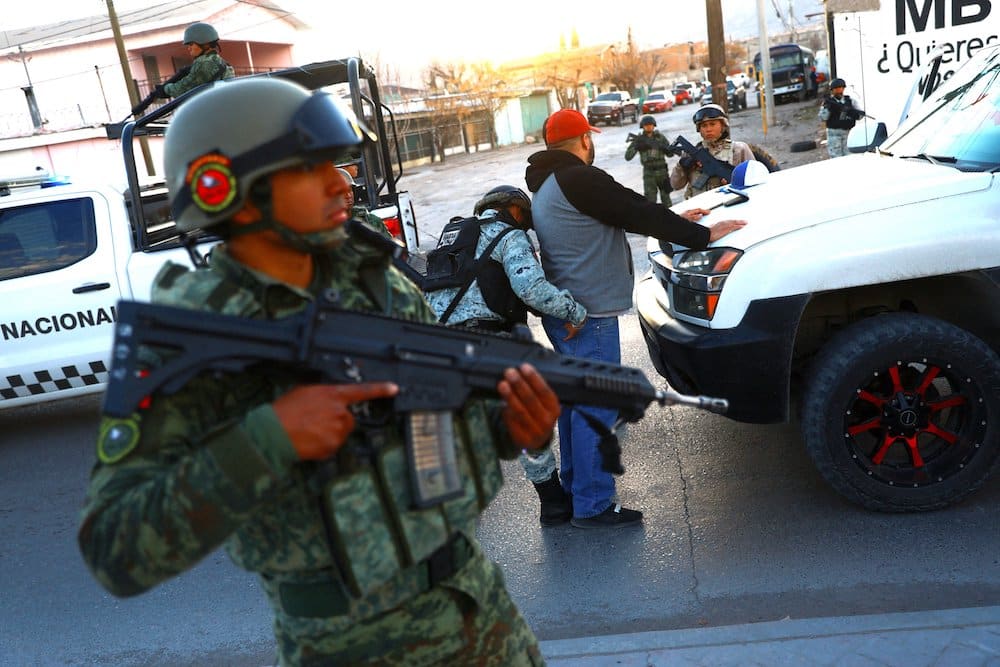
Bishops speak out
Bishop Rangel also took issue with the president’s stated security strategy of “hugs, not bullets,” saying, “Narcos are taking advantage of this benevolence.”
Bishop González and the other prelates in the talks — Archbishop Leopoldo González of Acapulco, Bishop Dagoberto Sosa of Tlapa, and Bishop Joel Ocampo of Ciudad Altamirano — urged government action.
In a statement posted Feb. 18 on X, they said, “We ask our leaders to overcome any attitude of indifference towards those who elected them to govern and avoid being surpassed by those who try to take over the spirit, economic life and future of our municipalities.”
Priests in Guerrero continue to work amid the violence, though it presents challenges such as not being able to reach some communities due to conflict, entire towns being forcibly displaced and crime bosses wanting to be godparents at baptisms.
In an interview with OSV News, Father Velázquez said ministering in Guerrero is like being “a war chaplain.”
“It means bringing the sacred to a moment of difficulty, the sacred to a moment of darkness,” he said. “It’s the sacrifice of Christ, the suffering in the midst of the suffering of men and women with the hope of the resurrection, the hope that they will be better.”

